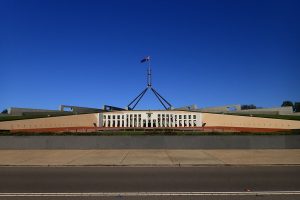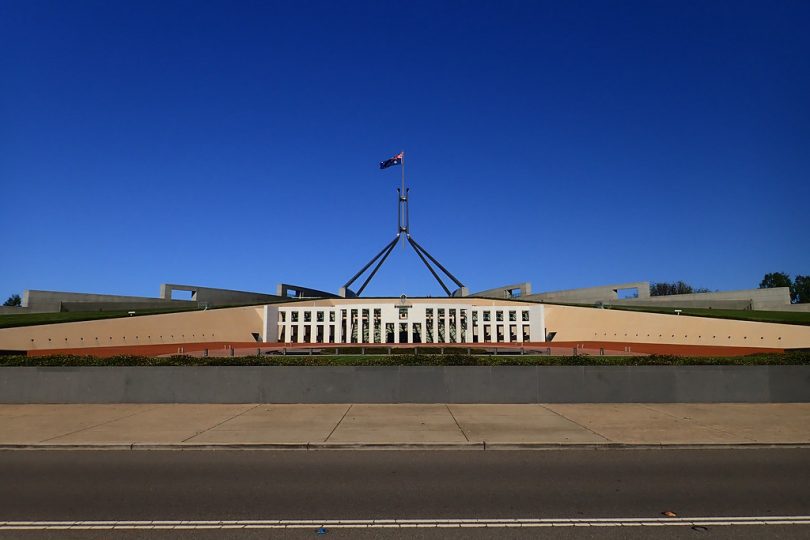
(Featured Image: Orion Kahza, public domain)
How we define our role as a journalist establishes our own code of conduct.
In order to remain neutral in our storytelling, we must remove ourselves from the cultural, political, social and ideological conditioning that have influenced us.
We are there to tell the story that needs to be told, not necessarily the story we want to tell.
Therefore the scope of our journalistic practices need to extend beyond the limitations of democratic values.
In order to tell a full detailed story we must transcend our bias and not constrain the scope of our journalism to preconceived traditions.
We inherently favour what resonates as truth with us, but that very trait limits our ability to receive contradictory information.
If we are to value ourselves as neutral journalists we must move away from the embedded values of the society and the governing processes from which we come.
Journalism is still journalism outside of democratic countries.
In 2003, the then Premier of Beijing, Wen Jiabao signed off on a document announcing the abolition of a decade long detention law that permitted the police the right to detain people at will and force and enslave them to prison camps.
This wave of social transition inspired a new generation of Chinese journalists, of whom reported on the landmark Sun Zhigang case.
These journalists see themselves as crafting truthful journalism – exposing corruption and other crimes as well as independently analysing the complicated nature of Chinese society.
The optimism that came with this change in legislation was short lived when those journalists who exposed the Sun Zhigang investigation were arrested by police at their homes and offices.
They saw the most ironic and contradictory effect of their journalism – while laws were changed journalists sacrifice their freedom for this to come to effect.
There is real risk in this role and their commitment to truth-telling is a brave act of activism, but the cage of consequences put on them by the State does bare limits and increases risk. As Hutchins wrote in 1947:
“The idea that the availability of good, reliable and comprehensive journalism is a necessary component of a citizens control. If the freedom of the press is to achieve reality, government must set limits on its capacity to interfere with, to regulate or suppress the voice of the press. . . not merely because freedom of expression is a reflection of important interest of the community, but also because it is a moral right.”
Today, we need to recognise that any body that has the authority to establish and protect this virtue of ‘free press’ also has the capacity to endanger it.
The relationship between the journalist, the citizen and the government is twofold: accountability and authenticity, whereby the journalist is the fulcrum between the citizen and the State.
If the west is so transparent, why do we need watchdog journalism?
To pursue this moral right reporters have to act in ways which are sometimes considered immoral- whistle blowing.
Reporting which claims to uncover truths hidden in the form of whistle blowing and watchdog journalism. It should be noted that instances of whistle blowing reporting happens in the west as well, although we idealise western press as libertarian and free compared to the east. We need to step away from such a dichotomy of categorisation.
Katherine Gun, the British whistle blower who leaked a memo to The Observer, detailing private communications of UN delegates that had been monitored to give the US an edge in the 2003 Iraq war. To do this she violated the Official Secrets Act but in doing so exposed the Blair government’s corruption and concealment of conspiring to an unjust war.
Reporters in the libertarian traditions abide by values of neutrality, objectivity and value-free, that is, no moral agenda or implicit definition of right and wrong but is it possible to have value free reporting? Ettema and Glasser wrote in 1998 that:
“Acknowledging that reporters cling to the view that news judgements can be made without also making moral judgements, they nevertheless write that ‘we maintain that any attempt to gain truly important knowledge of human affairs. . . is built on a foundation of fact that to have been called existence, given structure and made meaningfully values. The separation of fact and value is inevitably breached by all but the most elementary and isolated bits of information about the social world.”
As western-trained reporters, we need to be able to step out of the cultural conditioning from the context of democracy in order to report on what is actually happening and not what we think is happening only by the bias of what our worldview limits us to observe.
Entangling journalist practice only with the lens of democracy reduces the very real scope of journalistic work outside of that tradition.




It’s controversial even to bring up the fact that journalism can happen outside democracy. It’s interesting to see how your thinking on this subject changes over time. Clearly there is some excellent journalism in countries outside the liberal tradition, but it is hard to get our Australian heads around that.
I like the line “Journalism is still journalism outside of democratic countries.” I’ve been reading about the difference between state controlled media and public broadcasters, and I agree that it’s not up to a countries ideology to say what defines journalism. Of course I’m biased because I grew up on a certain brand of media, but your last paragraph was especially great, and the idea of “the bias of what our worldview limits us to observe”. This one made me think so I’ve come back to it a few times.
Hi Maddison, great thought provoking article. There are many great lines in there, but I particularly liked your statement of “we inherently favour what resonates as truth with us, but that very trait limits our ability to receive contradictory information”. I think this is a great way to help us understand the world’s increasing polarisation – many people point blank refuse to negotiate with information on the other side of what they consider the truth.
As journalist students, we’ve been advised to engage with both left and right leaning newspapers. But after reading your article, I think it’s also important for us to be engaging with news outside of western democratic countries too. This can help us to move away from what you described as our “cultural conditioning” and onto a path of more accurate and balanced reporting.